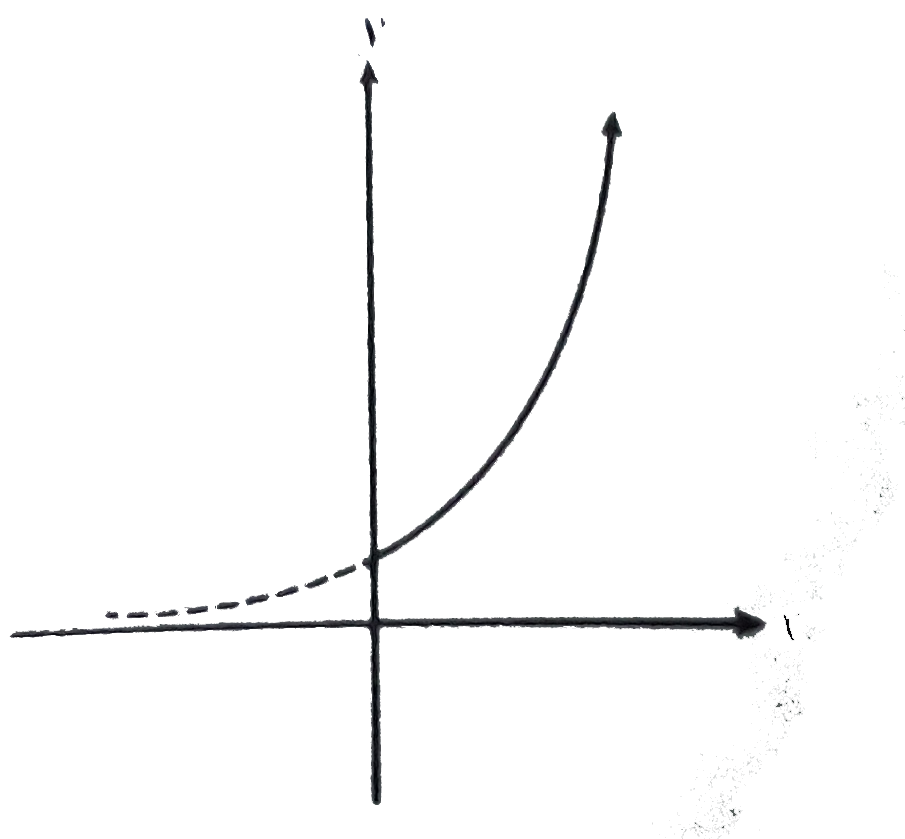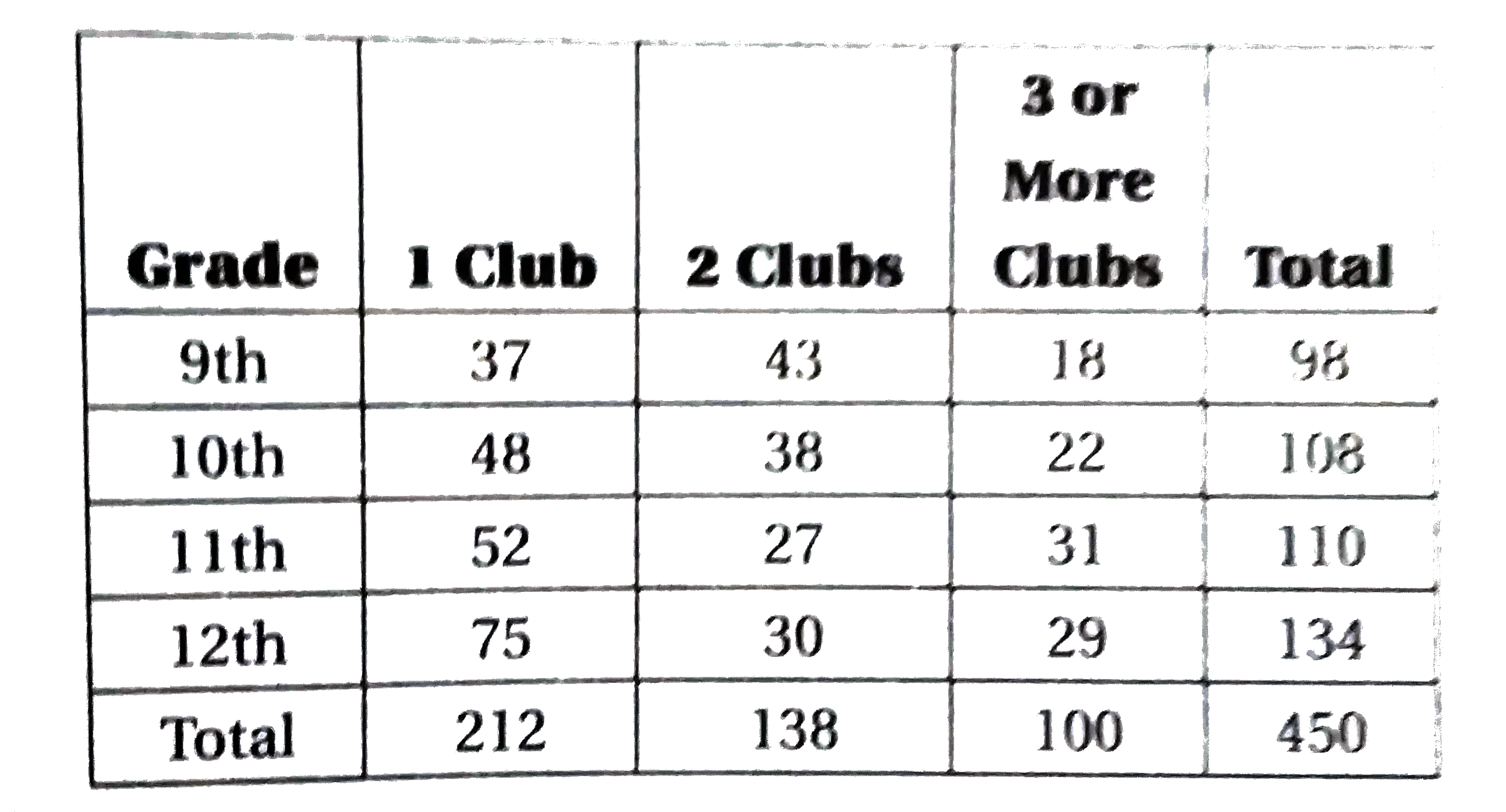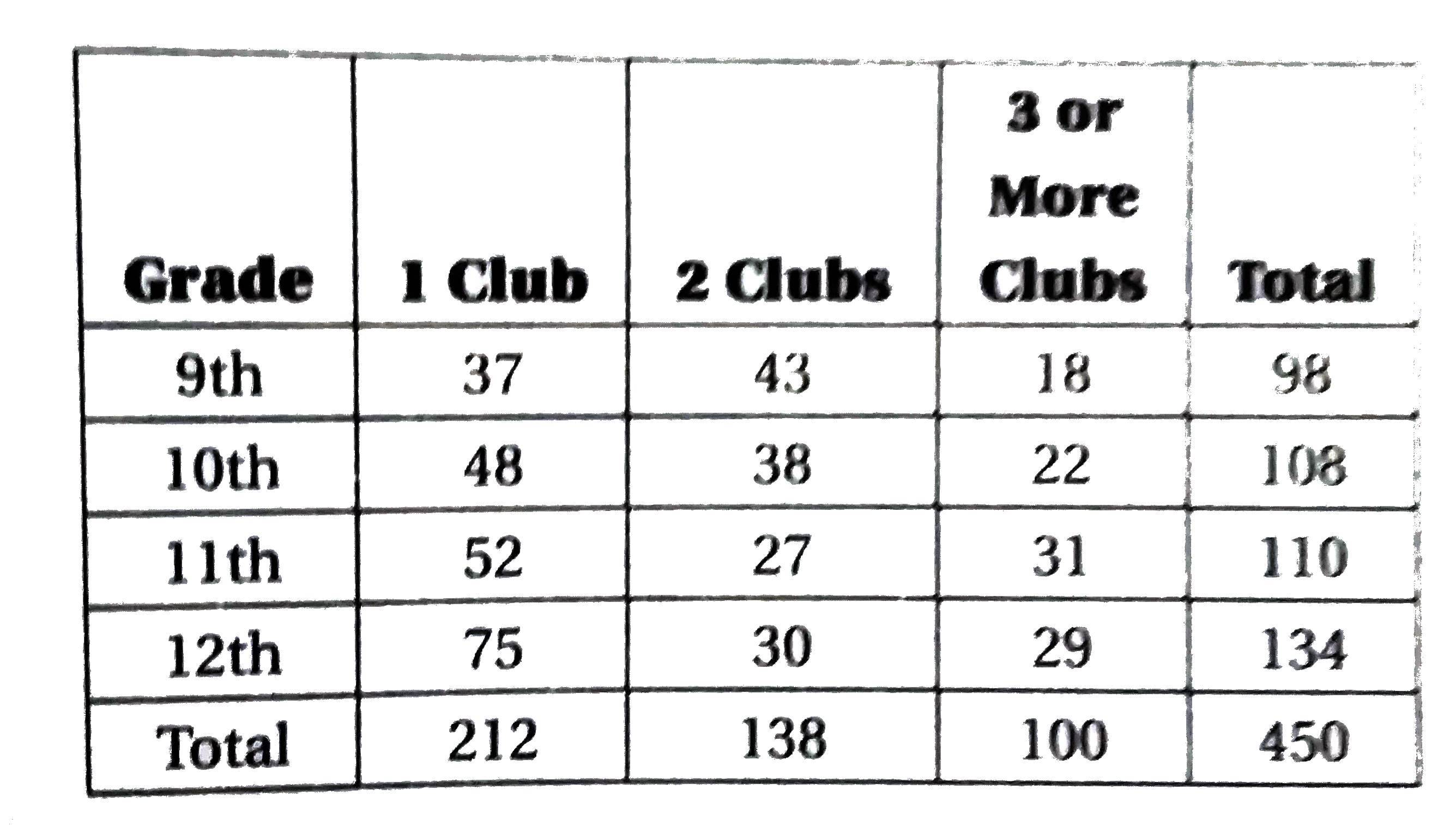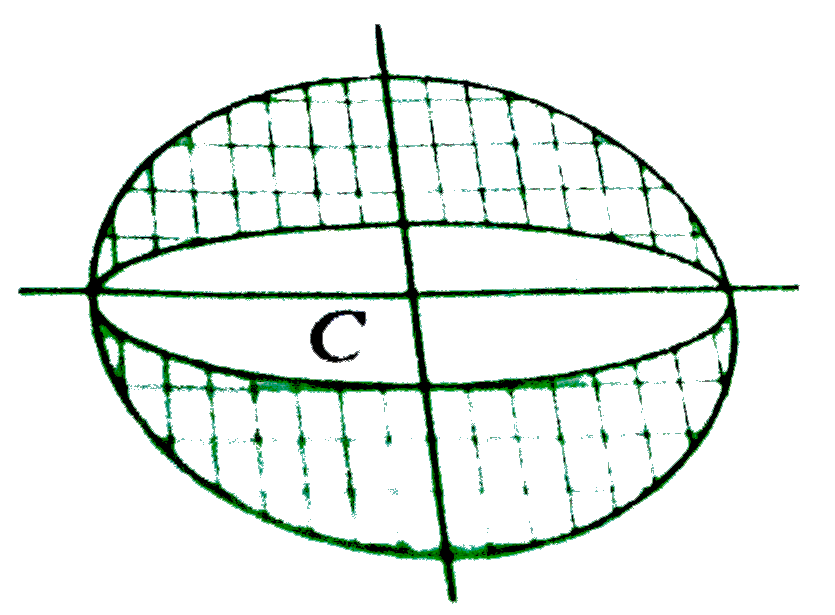The 13-member math club needs to choose a student government representative. They decide that the representative, who will be chosen at random, CANNOT be any of the 3 officers of the club. What is the probability that Samara, who is a member of club but NOT an officer, will be chosen?
0
113
110
313
The correct Answer is:C
Step by step video, text & image solution for The 13-member math club needs to choose a student government representative. They decide that the representative, who will be chosen at random, CANNOT be any of the 3 officers of the club. What is the probability that Samara, who is a member of club but NOT an officer, will be chosen? by Maths experts to help you in doubts & scoring excellent marks in Class 12 exams.
Topper's Solved these Questions
Similar Questions
Of all the students in a school, it is known that 30% have 100% attendance and 70% students are irregular. Previous year results report that 70% of all students who have 100% attendance attain A grade and 10% irregular students attain A grade in their annual examination. At the end of the year, one student is chosen at random from the school and he was found to have an A grade. What is the probability that the student has 100% attendance ? Is regularity required in school ? Justify your answer.
View SolutionA local card club will send 3 representatives to the national conference. If the the local club has 8 members, how many different groups of representatives could the club send?
View Solution
Knowledge Check
- Question 1 - Select One
Thirty percent of the 20 people in the math club have blonde hair. If 3 people are selecfted at random from the club what is the probability that none has blonde hair?
A0.1B0.25C0.32D0.4 - Question 2 - Select One
The friends start an international club that meets monthly . To increase membership, they decide that at the next meeting . Each member will being a friend , and at each subsequent meeting for the next 6 months. Each member will bring a new member . For this plan , whic of the following graphs , for x gt 0 , represents the number of members after x meetings ?
A B
B C
C D
D
- Question 3 - Select One
This passage is adapted from Elizabeth Cady Stanton’s address to the 1869 Woman Suffrage Convention in Washington, DC.
I urge a sixteenth amendment, because “manhood suffrage,” or a man’s government, is civil, religious, and social disorganization. The male element is a destructive force, stern, selfish, aggrandizing, loving war, violence, conquest, acquisition, breeding in the material and moral world alike discord, disorder, disease, and death. See what a record of blood and cruelty the pages of history reveal! Through what slavery, slaughter, and sacrifice, through what inquisitions and imprisonments, pains and persecutions, black codes and gloomy creeds, the soul of humanity has struggled for the centuries, while mercy has veiled her face and all hearts have been dead alike to love and hope!
The male element has held high carnival thus far, it has fairly run riot from the beginning, overpowering the feminine element everywhere, crushing out all the diviner qualities in human nature, until we know but little of true manhood and womanhood, of the latter comparatively nothing, for it has scarce been recognized as a power until within the last century. Society is but the reflection of man himself, untempered by woman’s thought, the hard iron rule we feel alike in the church, the state, and the home. No one need wonder at the disorganization, at the fragmentary condition of everything, when we remember that man, who represents but half a complete being, with but half an idea on every subject, has undertaken the absolute control of all sublunary matters.
People object to the demands of those whom they choose to call the strong-minded, because they say “the right of suffrage will make the women masculine.” That is just the difficulty in which we are involved today. Though disfranchised, we have few women in the best sense, we have simply so many reflections, varieties, and dilutions of the masculine gender. The strong, natural characteristics of womanhood are repressed and ignored in dependence, for so long as man feeds woman she will try to please the giver and adapt herself to his condition. To keep a foothold in society, woman must be as near like man as possible, reflect his ideas, opinions, virtues, motives, prejudices, and vices. She must respect his statutes, though they strip her of every inalienable right, and conflict with that higher law written by the finger of God on her own soul. . . . . . . [M]an has been molding woman to his ideas by direct and positive influences, while she, if not a negation, has used indirect means to control him, and in most cases developed the very characteristics both in him and herself that needed repression. And now man himself stands appalled at the results of his own excesses, and mourns in bitterness that falsehood, selfishness, and violence are the law of life. The need of this hour is not territory, gold mines, railroads, or specie payments but a new evangel of womanhood, to exalt purity, virtue, morality, true religion, to lift man up into the higher realms of thought and action.
We ask woman’s enfranchisement, as the first step toward the recognition of that essential element in government that can only secure the health, strength, and prosperity of the nation. Whatever is done to lift woman to her true position will help to usher in a new day of peace and perfection for the race.
In speaking of the masculine element, I do not wish to be understood to say that all men are hard, selfish, and brutal, for many of the most beautiful spirits the world has known have been clothed with manhood, but I refer to those characteristics, though often marked in woman, that distinguish what is called the stronger sex. For example, the love of acquisition and conquest, the very pioneers of civilization, when expended on the earth, the sea, the elements, the riches and forces of nature, are powers of destruction when used to subjugate one man to another or to sacrifice nations to ambition.
Here that great conservator of woman’s love, if permitted to assert itself, as it naturally would in freedom against oppression, violence, and war, would hold all these destructive forces in check, for woman knows the cost of life better than man does, and not with her consent would one drop of blood ever be shed, one life sacrificed in vain.
Stanton claims that which of the following was a relatively recent historical development?AThe control of society by menBThe spread of war and injusticeCThe domination of domestic life by menDThe acknowledgment of women’s true character
Of the students in a college, it is known that 60% reside in hostel and 40% day scholars (not residing in hostel). Previous year results report that 30% of all students who reside in hostel attain ‘A’ grade and 20% of day cholars attain ‘A’ grade in their annual examination. At the end of the year, one student is chosen at random from the college and he has an ‘A’ grade, what is the probability that the student is a hosteler?
View Solution
Question 4-6 refer to the above table, which summarizes the result of a survey of the student body of a high school about club membership in which each student enrolled in the high school enumerated the clubs in which they were members.
Q. If a students is selected at random, what is the probability that the student does not belong to 3 or more clubs?View Solution
Question 4-6 refer to the above table, which summarizes the result of a survey of the student body of a high school about club membership in which each student enrolled in the high school enumerated the clubs in which they were members.
Q. If a student is selected at random, what is the probability that the student is either a 9th grade student or belongs to 3 or more clubs?View SolutionTwo friends Seema and Aditya work in the same office at Delhi. In the Christmas vacations, both decided to go to their hometowns represented by Town A and Town B respectively in the figure given below. Town A and Town B are connected by trains from the same station C (in the given figure)in Delhi.Based on the given situation, answer the following questions:
img src="https://d10lpgp6xz60nq.cloudfront.net/physics_images/MATH_041_X_SQP_E03_007_Q01.png" width="80%"gt
(i) Who will travel more distance, Seema or Aditya, to reach to their hometown?
(ii) Seema and Aditya planned to meet at a location D situated at a point D represented by the mid-point of the line joining the points represented by Town A and Town B. Find the coordinates of the point represented by the point D .
(iii) Find the area of the triangle formed by joining the points represented by A, B and C.View SolutionThere are some experiment in which the outcomes cannot be identified discretely. For example, an ellipse of eccentricity 2√2/3 is inscribed in a circle and a point within the circle is chosen at random. Now, we want to find the probability that this point lies outside the ellipse. Then, the point must lie in the shaded region shown in Figure. Let the radius of the circle be a and length of minor axis of the ellipse be 2b. Given that
1−b2a2=89orb2a2=19
Then, the area of circle serves as sample space and area of the shaded region represents the area for favorable cases. Then, required probability is
p=Area of shaded regionArea of circle
=πa2−πabπa2=1−ba=1−13=23
Now, answer the following questions.

Two persons A and B agree to meet at a place between 5 and 6 pm. The first one to arrive waits for 20 min and then leave. If the time of their arrival be independant and at random, then the probability that A and B meet isView Solution

